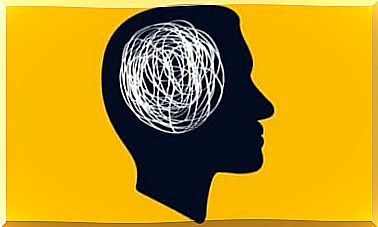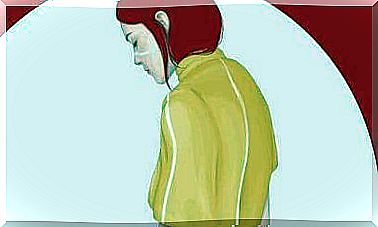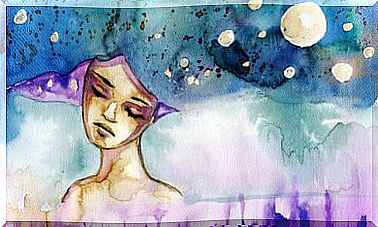What Reading Does To The Brain

Some things have the power to bring about positive changes in our brain. One of these is reading, and what reading does to the brain is pretty amazing. So what do we know about reading and the brain?
Not all books may have this power, but various studies say that reading stories about characters, real or fictional, can be one of the most transformative activities you can engage in.
In today’s world, many people wonder what literature is really good for. They say that you get the same benefits from watching a movie, and also easier. A book and all the words it contains must keep pace with special effects.
Not everyone reaches the point when they read where they feel they are actually in the story. Therefore, they prefer to watch it unfold on a screen.
However, it is clear that reading is a very different experience than watching a movie. First and foremost, reading requires higher levels of concentration, abstraction and imagination. Furthermore, what reading does to the brain is much more intense and long-lasting.
Let’s see what experts have to say about it…
Your perception of the world changes as you read. According to Keith Oatley – professor of cognitive psychology at the University of Toronto – reading a well-described scene can be equated with watching it on film.

Your mind uses memorized objects similar to those described in the scene. It’s like creating a mental photograph. Therefore, many processes work at the same time. The processes involve memory, perception and creativity.
After reading several scenes with detailed descriptions, we can create an album of scenes. The album is unique to each individual and non-transferable. Your mind coordinates all of these elements to make associations between what you read and what you know. This produces changes in your brain when it comes to perception and intelligence.
Researcher Raymond Mar – with a doctorate in psychology from York University – went even further. According to his studies on the subject , everything seems to indicate that the brain does not distinguish very well between things it has experienced and things it has read about.
Something similar happens when you watch a movie, but with reading it is more intimate and deeper. This leads to significantly greater changes in the brain.

Our brains behave similarly when we imagine a story and when we really experience it. Dr. Mar says that when you read about an action a character performs, the same areas of the brain are activated that are required when you actually perform this action.
In other words , we experience the story as if we were actually the character. The changes produced in the brain have even been localized with tests with nerve imaging. When a character walks, for example, motor functions are activated in the brain.
We literally experience what we read, and all because of a specific type of nerve cell: mirror neurons. Yes, the same nerve cells that, for example, make us imitate a yawn when we see another yawn. Those who make the baby smile when it sees someone else smiling.
Researchers have focused a lot on the changes that reading leads to in the brain in connection with empathy. First of all, they have discovered that the areas of the brain used to read and understand the actions of each character are the same as those used to understand other people.
At the end of the day, the underlying processes for both experiences are those that involve communication.
On the one hand, we thus experience the actions of a character as if we were the ones who did them; on the other hand, we also improve our ability to understand others, to connect situations and emotions.
In other words, reading is practicing and fueling empathy. In one way or another, we change our view when we read the plot of a story.

Dr. Mars gives us a clear example of this. He cites examples of a character with a disability. If the character’s experiences are told in sufficient detail, we will at some point understand how he feels. This is true even if we do not have any kind of restriction ourselves. In other words, we learn to put ourselves in someone else’s shoes.
These are just some of the benefits that reading has to offer. Dozens and dozens of changes are produced in the brain when we sit down but a book and live us into story.
What reading does to the brain is absolutely amazing. It helps us grow, connect with the rest of humanity and even become smarter.









